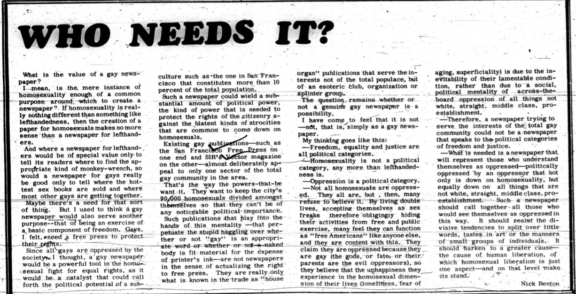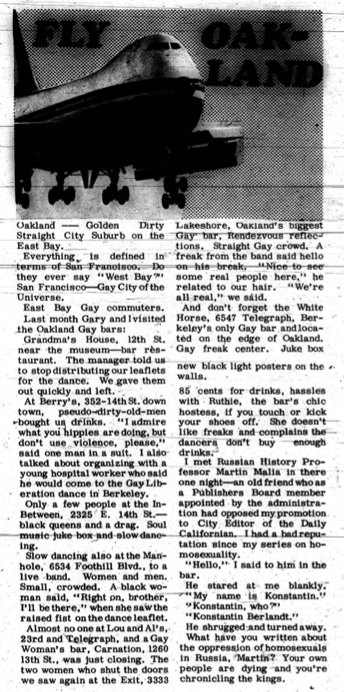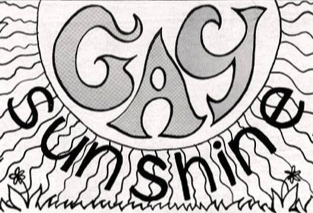Gay Sunshine was a radical underground newspaper from Berkeley, created for the gay community as an alternative to the more conservative gay press, like SIR’s magazine Vector and to the existing underground press in Berkeley, like the Berkeley Barb and the Berkeley Tribe, which did cover many gay issues, but wasn’t created for the community. However, the goal of Gay Sunshine was the explore the intersecting radical politics of the Bay Area, not to be a single issue newspaper like past conservative gay publications.

Nick Benton, “Who Needs It?,” Gay Sunshine, August-September 1970.
What is needed is a newspaper that will represent those who understand themselves as oppressed— politically oppressed by an oppressor that not only is down on homosexuality, but equally down on all things that are not white, straight, middle class, pro-establishment… It should harken to a greater cause— the cause of human liberation, of which homosexual liberation is just one aspect—and on that level made its stand. (1)
An article written by Konstantin Berlandt in Gay Sunshine from September 1970, “Fly Oakland,” demonstrates the growing tide of Gay radicals in the East Bay rejecting the gay nightlife scene in San Francisco and turning towards local bars. Berlandt reviews gay bars in Oakland, and the one, The White Horse, in Berkeley.

Konstantin Berlandt, “Fly Oakland,” Gay Sunshine, August-September 1970.
(1) Nick Benton, “Who Needs It?,” Gay Sunshine, August-September 1970.
